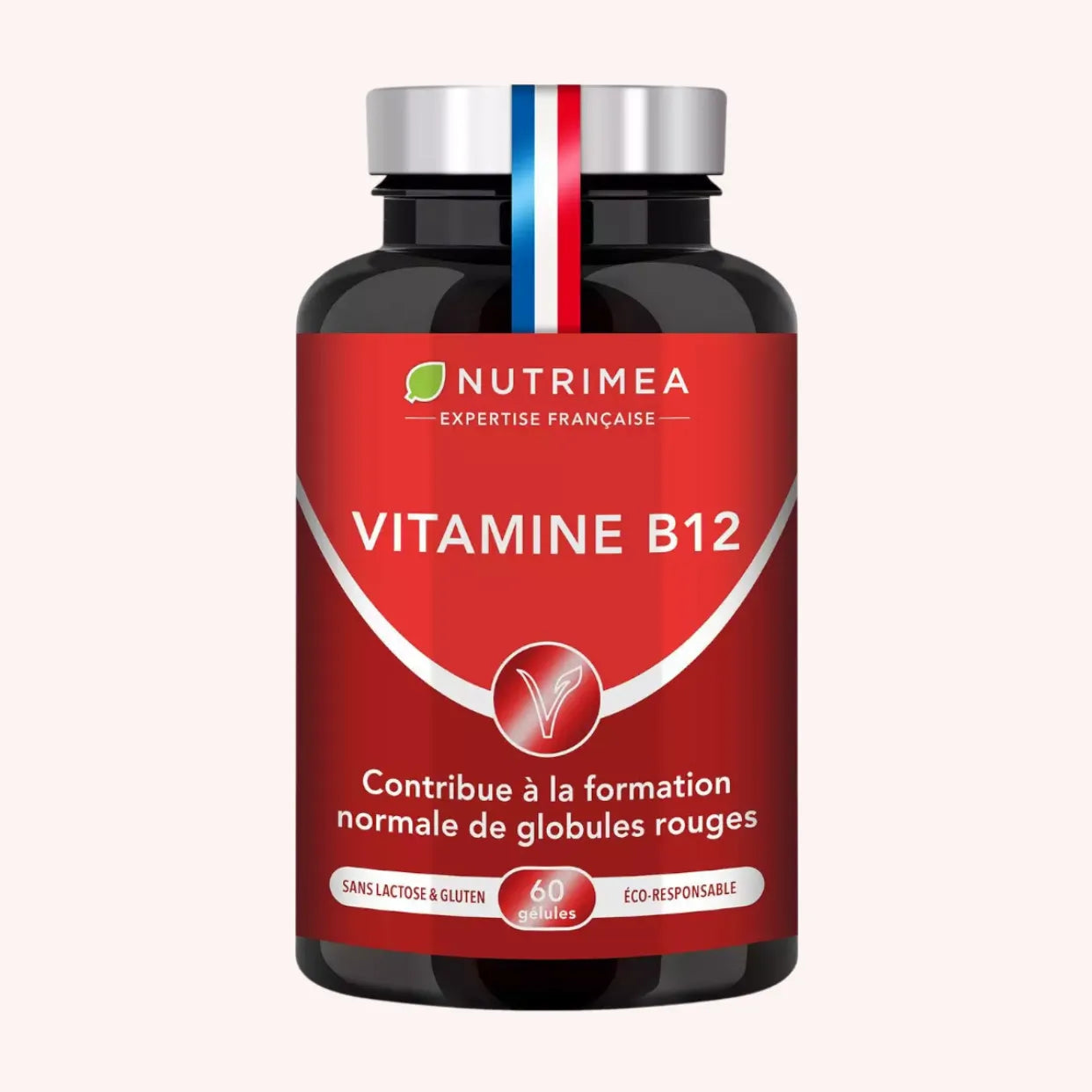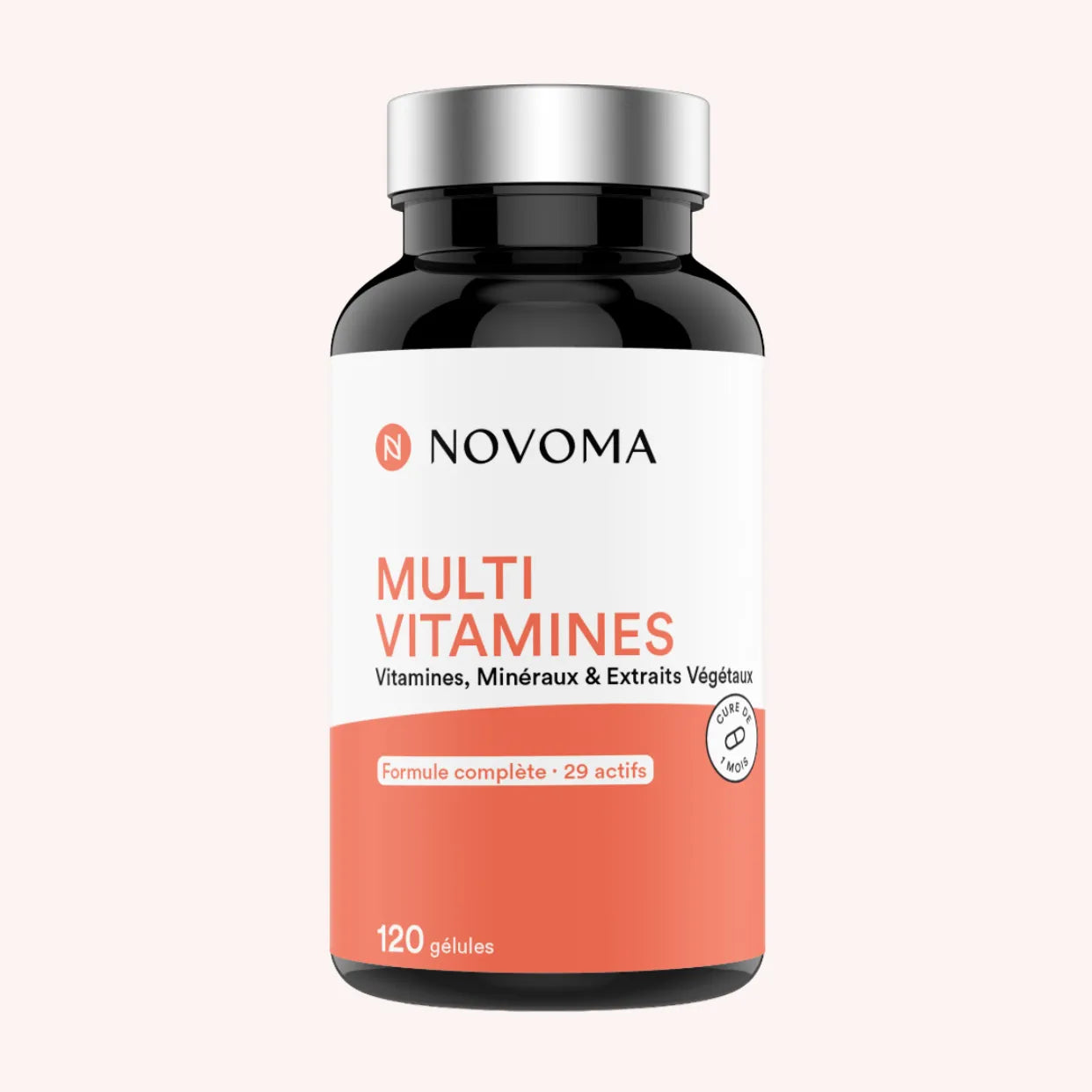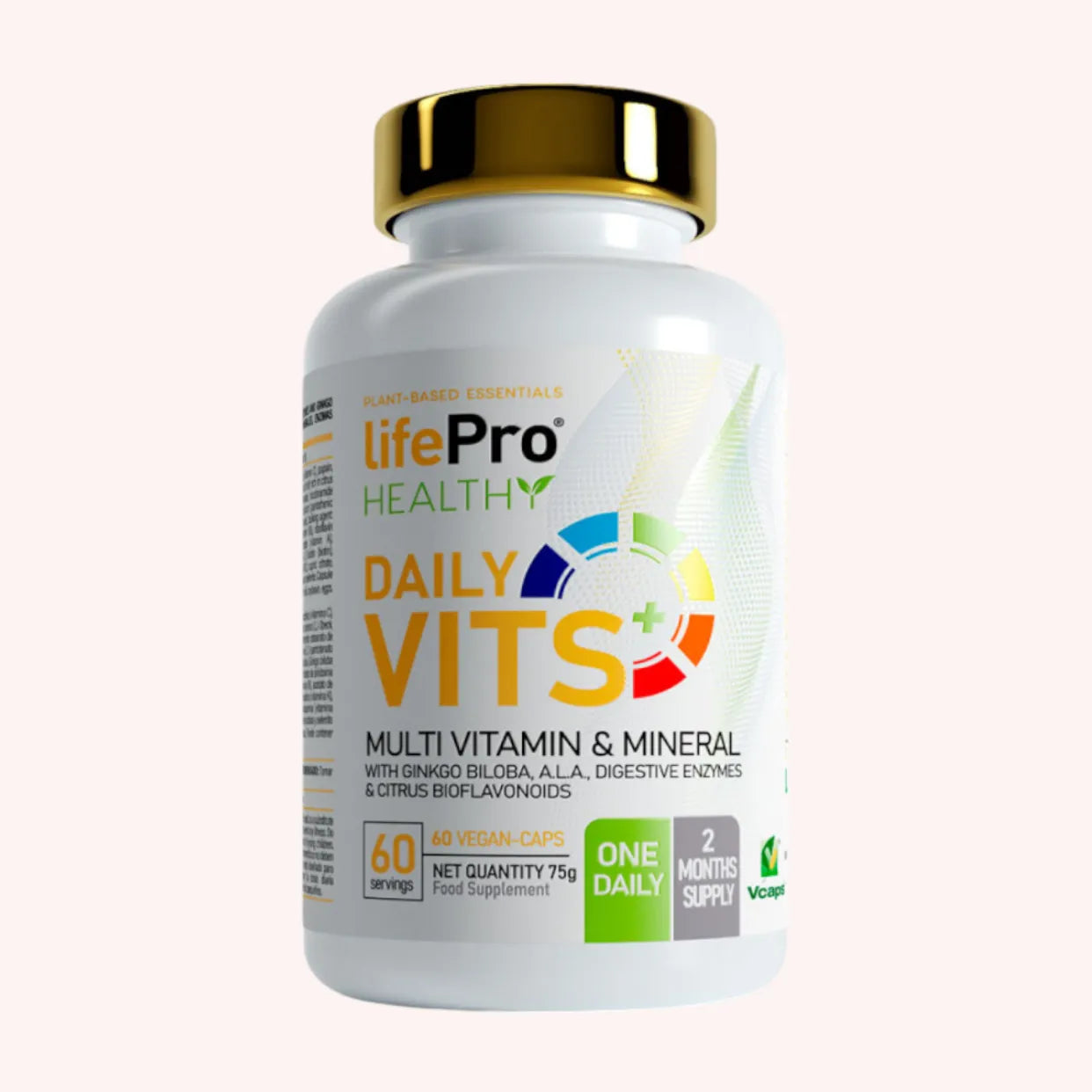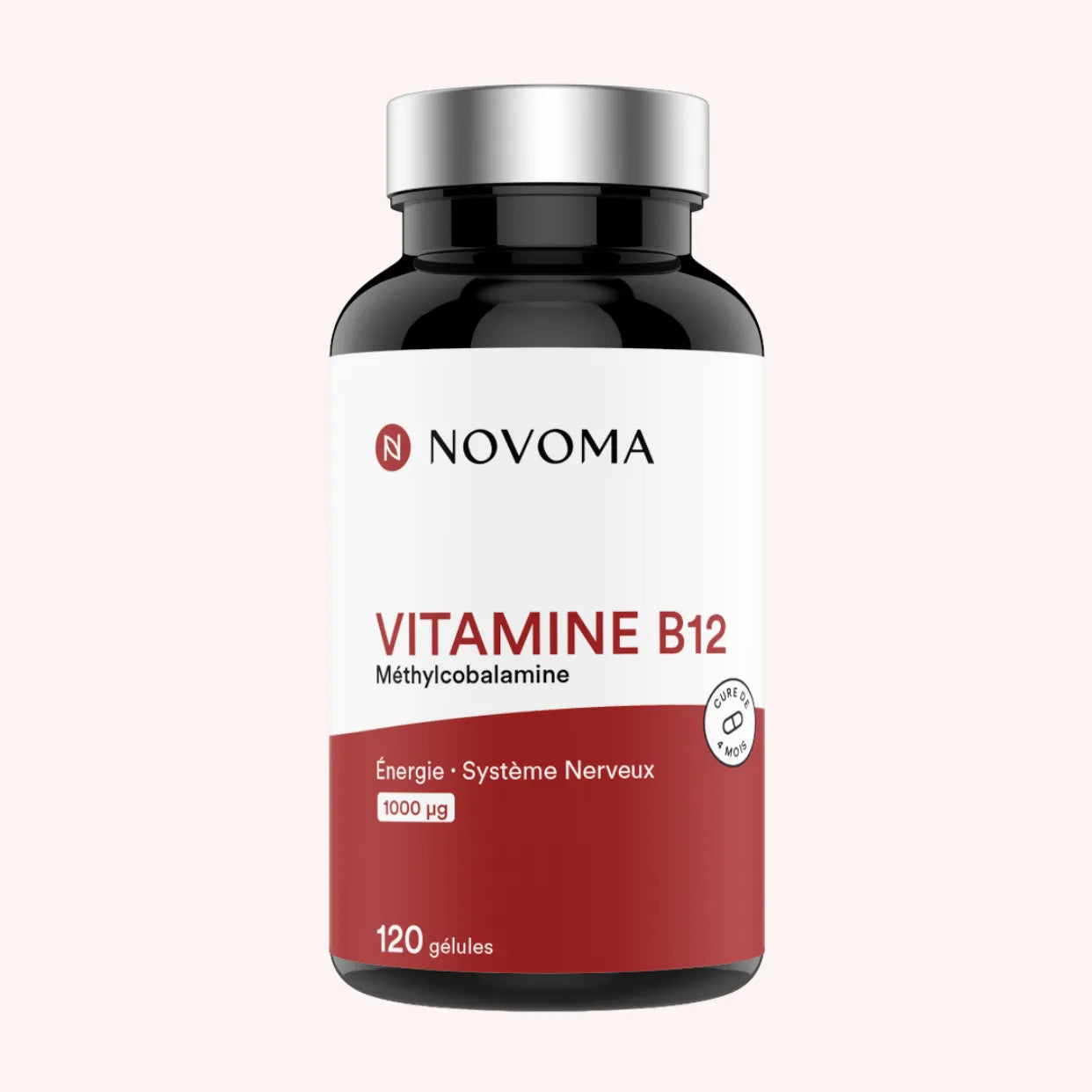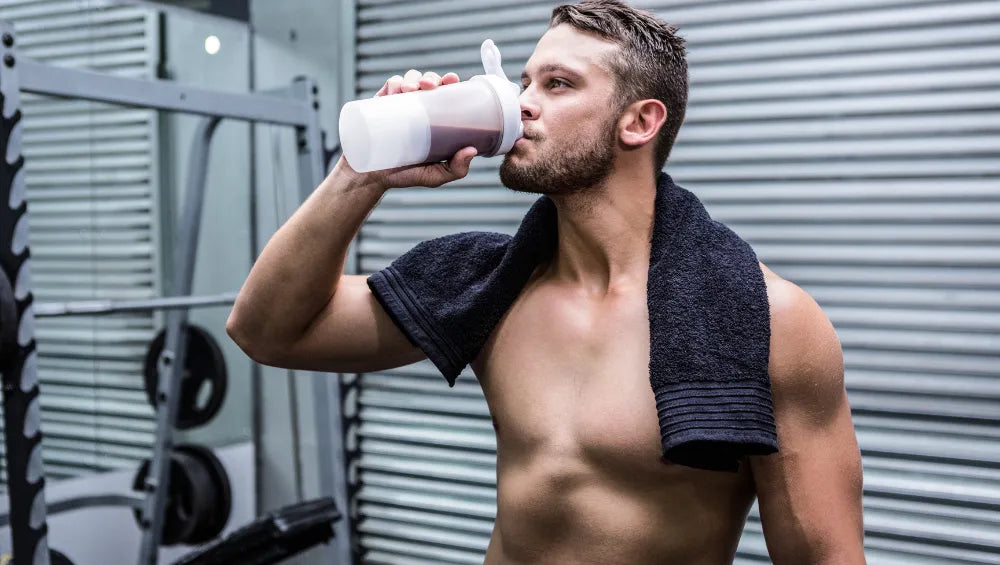The beneficial effect of vitamins on energy metabolism and your health in general is well established!
In particular, the group of B vitamins , including vitamin B12 (called cobalamin), which appears to have a marked beneficial effect on physical performance and tone, but also on nerve function, muscle development and more.
Here, we will take stock of the effects of these vitamins, more particularly on athletes.
The importance of vitamin B in energy metabolism
B vitamins, known as water-soluble, all act as coenzymes in a large number of biochemical reactions in the body and play a key role in converting carbohydrates, lipids, and proteins into energy. This is a fundamental action for athletes, whose training requires sufficient carbohydrate and energy levels to develop the intensity of muscular work and improve endurance capacity.
Vitamins B1 ( thiamine ), B2 ( riboflavin ), B3 ( niacin ), B5 ( pantothenic acid ) , B6 ( pyridoxine ), B8 ( biotin ), B9 ( folate ), and B12 ( cobalamin ) each play a vital role in energy metabolism. They help produce adenosine triphosphate ( ATP ), the primary energy source for muscles. These vitamins speed up nutrient utilization, thereby improving muscle performance.
Vitamin B is not only a source of energy for muscles. It is also crucial for preventing fatigue during training or competition. Furthermore, it is essential for recovery and the synthesis of proteins and neurotransmitters, which are essential for an athlete's cognition and physical performance.
Focus on vitamin B12: An essential ally for athletes
While vitamin B12 is one of the B vitamins, it is the only one with significant effects on the nervous system and the production of red blood cells. It is even the only vitamin containing a metallic element, cobalt, hence its chemical name: Cobalamin. However, it is the vitamin that plays an essential role in the formation of DNA , the production of red blood cells and the normal functioning of the nervous system , especially with regard to the transmission of nerve messages to the muscles.
For athletes, having a good level of vitamin B12 in their body is essential for:
- Energy Production: By participating in the metabolism of fatty acids and amino acids, vitamin B12 helps produce energy. This allows the athlete to ward off fatigue, increase endurance, and maintain performance during training.
- Muscle Recovery: B12 plays a role in muscle tissue regeneration by facilitating DNA synthesis, which helps repair micro-damage caused by physical exertion. This allows for faster recovery and reduces the risk of injury.
- Cognitive health: Cobalamin itself, by participating in nerve transmission, plays an essential role in motor coordination. Better athletic performance is therefore expected if the dialogue between the brain and muscles is well ensured and movements become more harmonious and efficient.
Another very important point is that vitamin B12 also works synergistically with iron to stimulate the production of red blood cells. These cells are the ones that carry oxygen to the muscle, ensuring a good supply for proper muscle function.
This shows how much a good supply of vitamin B12 to the body optimizes this oxygenation function, contributing to endurance and resistance to effort.
Vitamin B12 Deficiency: A Risk to Performance
Rich in benefits, vitamin B12 deficiency is nonetheless common, especially among athletes whose diet consists primarily of plants or vegan foods. Vitamin B12 comes almost exclusively from animal sources (meat, fish, eggs, dairy products).
For an athlete, B12 deficiency can have serious consequences on their physical performance. Typical symptoms include:
- Fatigue and weakness: A deficiency, due to insufficient dietary intake of B12, results in the body producing too few red blood cells, resulting in anemia, causing intense fatigue during training or even its impossibility, because the intensity can no longer be maintained.
- Musculoskeletal pain: B12 contributes to the proper delivery of nerve current to the muscles. Any deficiency results in chronic pain in the muscles and nerves, with possible recurrences of cramps, contractures, and tension, impairing athletic performance and increasing the risk of injury.
- Intellectual Disorders: Vitamin B12 contributes to the formation of healthy nervous systems. A deficiency, manifested by an inability to maintain attention or reactive memory, compromises the ability to remain alert during training and subsequent exercise.
Vegans should be especially wary of deficiencies, as their diet often contains too little B12. Therefore, it is often necessary to use supplements on a continuous basis to avoid deficiencies that would impair physical and mental abilities.
How to optimize your intake of vitamins B and B12
To get the most out of B vitamins, it is essential to eat a varied and balanced diet. You should make sure to include foods rich in B vitamins in your diet, including:
- Vitamins B1, B2, and B3: These vitamins are found primarily in whole grains, legumes, meat, and dairy products. They are essential for producing energy from carbohydrates and fats.
- Vitamin B6: Present in poultry, oily fish, potatoes, and green vegetables, B6 participates in protein metabolism and the synthesis of neurotransmitters.
- Vitamin B12: For those who consume animal products, meat, seafood, and eggs are the best sources of B12. For vegetarians and vegans, fortified products (such as certain cereals or plant-based milks) or a health supplement are recommended.
We also recommend that you have regular blood tests to monitor your B12 levels, especially if you are following a vegan diet or experiencing the deficiency symptoms mentioned above.
Supplementation: A solution to avoid deficiencies
Although food is the primary source of vitamins, supplementation may be necessary in some cases, especially for athletes with high needs or specific dietary restrictions. Vitamin B12 supplements generally come in two main forms : cyanocobalamin and methylcobalamin . The latter is often preferred because it is more easily absorbed by the body.
B12 supplements are available in various forms: tablets, capsules, injectable solutions, or sublingual sprays. Dosage depends on individual needs, but a recommended daily intake of 2.4 mcg is often recommended for a healthy adult. For athletes, an increase may be necessary depending on the intensity of their training.
In addition to vitamin B12, vitamin D benefits are also often recommended for athletes, especially those who train indoors or in areas with limited sunlight, aiding in bone health and muscle function. Vitamin K2 benefits, meanwhile, complements vitamin D by helping direct calcium to the bones and prevent it from accumulating in the arteries.
To maximize performance and enhance physical abilities, it's essential to ensure an adequate intake of B vitamins, particularly vitamin B12. These nutrients play a central role in energy metabolism, muscle recovery, and cognitive health—three key factors for any athlete looking to push their limits.
By ensuring a diet rich in B vitamins and appropriate supplementation when necessary, athletes can optimize their energy, improve their endurance, and promote better recovery. Thus, vitamin B12, combined with a well-thought-out nutritional strategy, becomes a major asset for maximizing results in bodybuilding and any other sporting discipline.
Sources:
- Imen Rojbi, Mehdi Kalthoum, Sabrine Mekni, Kahena Bouzid, Karima Khiari, Ibtissem Ben Nacef. "Vitamin B12 status in type 2 diabetics treated with metformin compared to those without metformin : a cross-sectional study in Tunisia." Tunis Med. , 2023 Apr; 101(4): 433-439. PMCID: PMC11217969. : https://www.semanticscholar.org/paper/Statut-en-vitamine-B12-cez-les-diab%C3%A9tiques-type-2-%C3%A0-Rojbi-Kalthoum/3e8576b5807b9a4c3a61d5231187a1c4df7a60bc
- Aidan McKee, Brittany Salter, Siraj Mithoowani. "Thrombotic pseudomicroangiopathy caused by severe vitamin B12 deficiency." CMAJ. , 2023 Nov 27; 195(46): E1604-E1609. DOI: 10.1503/cmaj.230959-f. PMCID: PMC10681673. : https://pmc.ncbi.nlm.nih.gov/articles/PMC10681673/
- Emmanuel Andrès, Abrar-Ahmad Zulfiqar, Khalid Serraj, Thomas Vogel, Georges Kaltenbach. “Systematic Review and Pragmatic Clinical Approach to Oral and Nasal Vitamin B12 (Cobalamin) Treatment in Patients with Vitamin B12 Deficiency Related to Gastrointestinal Disorders.” J Clin Med. , 2018 Oct; 7(10): 304. DOI: 10.3390/jcm7100304. PMCID: PMC6210286. : https://pubmed.ncbi.nlm.nih.gov/30261596/
- Bruce HR Wolffenbuttel, Hanneke JCM Wouters, M. Rebecca Heiner-Fokkema, Melanie M. van der Klauw. “The Many Faces of Cobalamin (Vitamin B12) Deficiency.” Mayo Clin Proc Innov Qual Outcomes. , 2019 Jun; 3(2): 200-214. DOI: 10.1016/j.mayocpiqo.2019.03.002. PMCID: PMC6543499. : https://pubmed.ncbi.nlm.nih.gov/31193945/
- Maha Ait Berri, Abdellah Taous, Tarik Boulahri, Imane Traibi, Abdelhadi Rouimi. "Neurological disorders secondary to vitamin B12 deficiency: analysis of 29 cases." Pan Afr Med J. , 2019; 32: 108. DOI: 10.11604/pamj.2019.32.108.17609. PMCID: PMC6560986. : https://pmc.ncbi.nlm.nih.gov/articles/PMC6560986/
- Nourdine Attiya. "Oral diagnosis of vitamin B12 deficiency due to long-term treatment with metformin: a case report." Pan Afr Med J. , 2020; 37: 280. DOI: 10.11604/pamj.2020.37.280.19776. PMCID: PMC7864276. : https://pmc.ncbi.nlm.nih.gov/articles/PMC7864276/
- Mechaal Benali, Mahdi Bouassida, Firas Dhouib, Kaled Bouzeidi. "Pseudo-HELLP syndrome due to folate and/or vitamin B12 deficiency: a case report." Pan Afr Med J. , 2014; 18: 99. DOI: 10.11604/pamj.2014.18.99.2483. PMCID: PMC4232030. : https://pmc.ncbi.nlm.nih.gov/articles/PMC4232030/





